
I study political elites, institutions, and public opinion in Europe, using experiments and computational methods.
https://romansenninger.github.io/
Pilot data from the UK show that Denmark is ranked as one of the most preferred reference countries, particularly in relation to migration policy.

Pilot data from the UK show that Denmark is ranked as one of the most preferred reference countries, particularly in relation to migration policy.
The Politics of Evidence Selection (w/ @jesperasring.bsky.social )
Comments welcome!
🔗 osf.io/preprints/so...




The Politics of Evidence Selection (w/ @jesperasring.bsky.social )
Comments welcome!
🔗 osf.io/preprints/so...

New paper w/ Derek Beach and Jannik Fenger on framing effects out in @ejprjournal.bsky.social
Open Access: doi.org/10.1017/S147...

New paper w/ Derek Beach and Jannik Fenger on framing effects out in @ejprjournal.bsky.social
Open Access: doi.org/10.1017/S147...

I’m presenting pilot data @lundsuniversitet.bsky.social today:
Nordic and richer countries are preferred benchmarks, but performance information can shift who is seen credible.
\w @muzhou-zhang.bsky.social and @winniexia.bsky.social


I’m presenting pilot data @lundsuniversitet.bsky.social today:
Nordic and richer countries are preferred benchmarks, but performance information can shift who is seen credible.
\w @muzhou-zhang.bsky.social and @winniexia.bsky.social
Using RDD and elite survey data from Denmark, we show that losing candidates express greater concern about electoral fairness.
🔗 doi.org/10.1086/734240

Using RDD and elite survey data from Denmark, we show that losing candidates express greater concern about electoral fairness.
🔗 doi.org/10.1086/734240
We study how the European Commission navigates interests, conflict, information & evidence in policy preparation.
Free intro + promo code 👉 academic.oup.com/book/59966
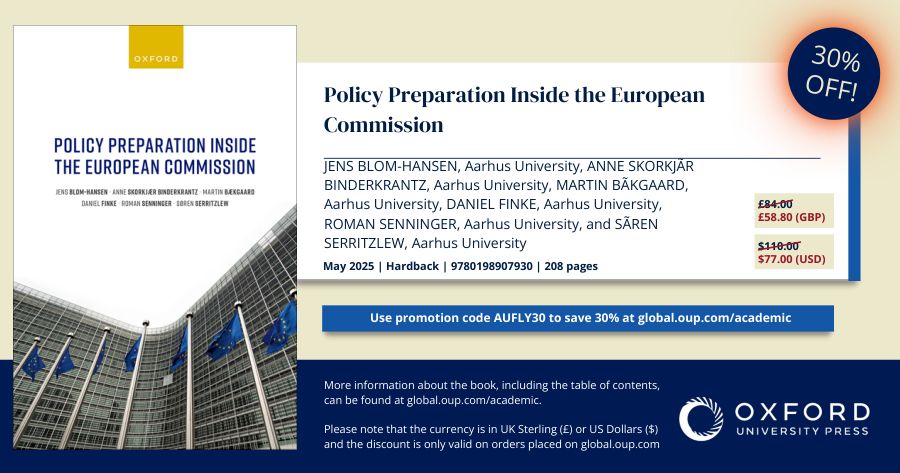
We study how the European Commission navigates interests, conflict, information & evidence in policy preparation.
Free intro + promo code 👉 academic.oup.com/book/59966
In a parallel survey (N = 1,428), FPÖ supporters also preferred the “fewer migrants” evidence.
Left-leaning voters leaned toward the “poverty” evidence, but less strongly.
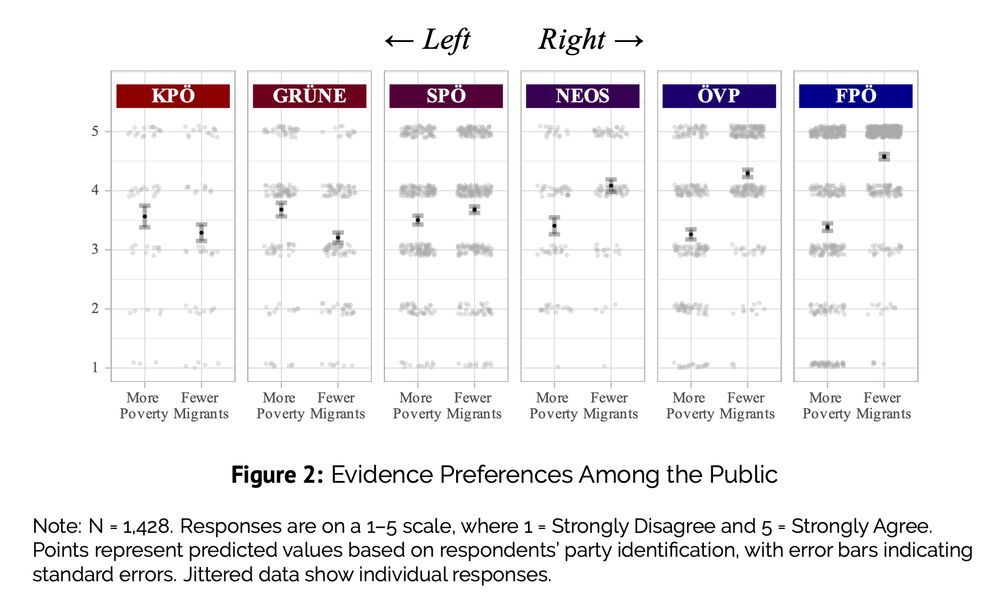
In a parallel survey (N = 1,428), FPÖ supporters also preferred the “fewer migrants” evidence.
Left-leaning voters leaned toward the “poverty” evidence, but less strongly.
We tracked which link they clicked.
Candidates from ideologically extreme parties were most likely to select evidence aligned with their party’s position.
This pattern was especially clear among far-right candidates (FPÖ).
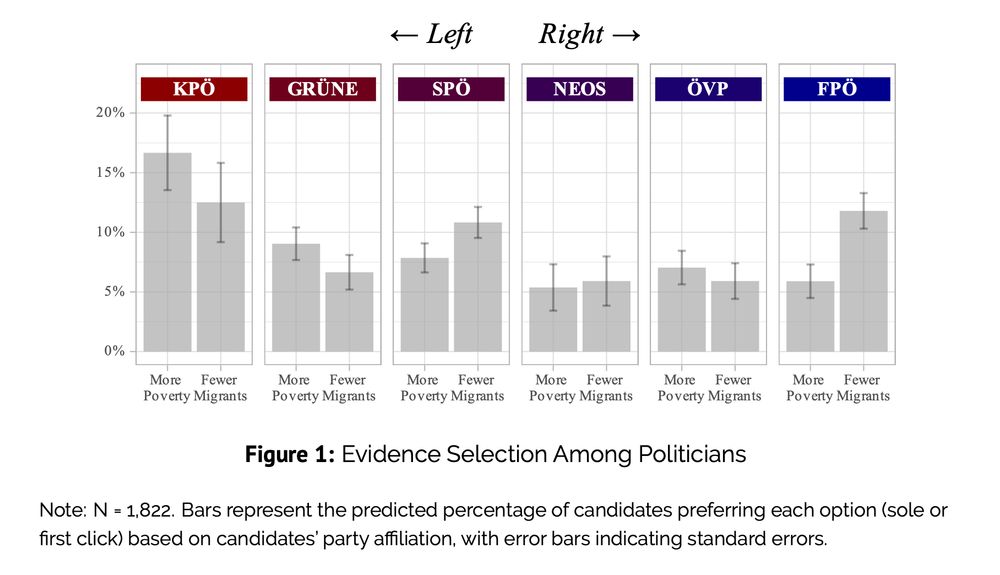
We tracked which link they clicked.
Candidates from ideologically extreme parties were most likely to select evidence aligned with their party’s position.
This pattern was especially clear among far-right candidates (FPÖ).
@jesperasring.bsky.social and I study how politicians engage with evidence in the real world.
Link: osf.io/8zv9s
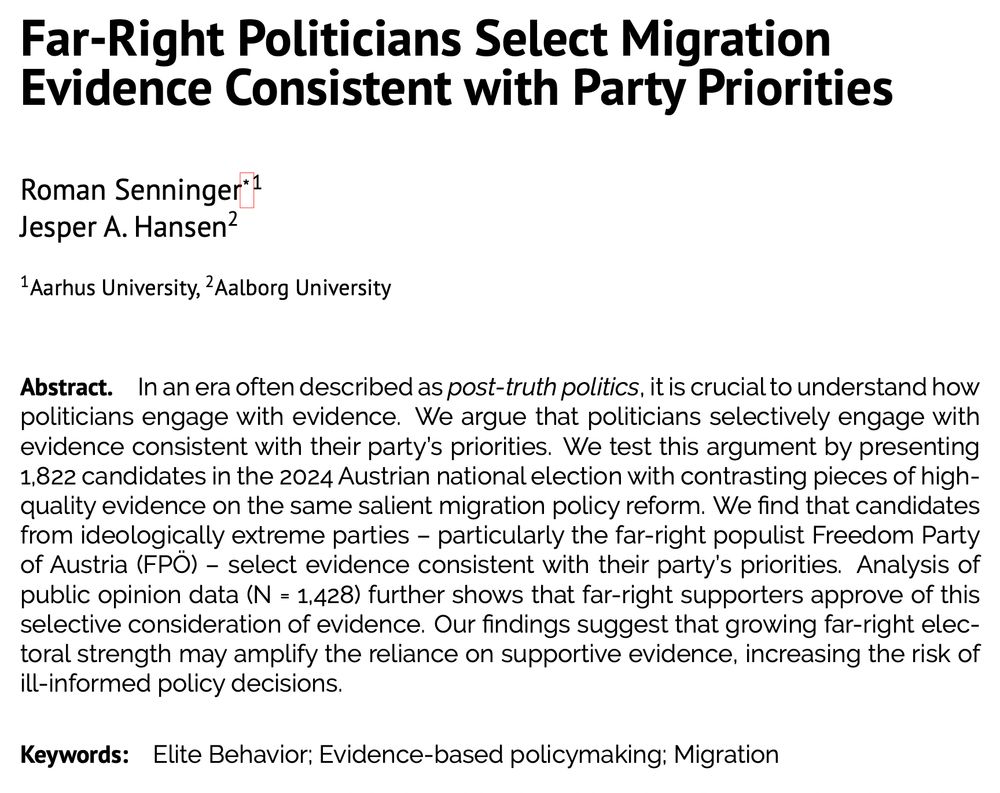
@jesperasring.bsky.social and I study how politicians engage with evidence in the real world.
Link: osf.io/8zv9s

Our study of Denmark’s 2022 EU referendum suggests they can. Framing effects declined as voters became more informed and drew on their own EU attitudes.
Happy to share it's now accepted in the EJPR!
Pre-print: osf.io/preprints/os...
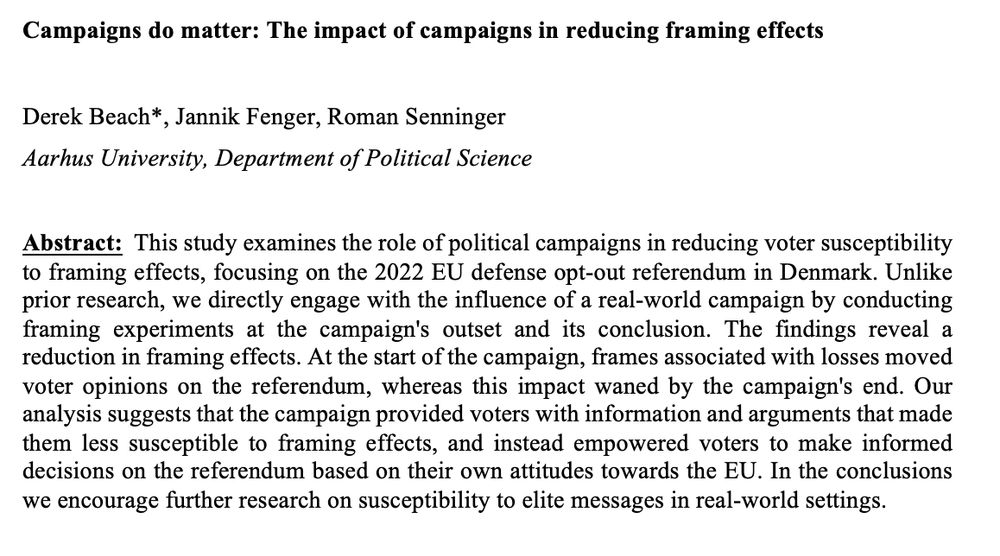
Our study of Denmark’s 2022 EU referendum suggests they can. Framing effects declined as voters became more informed and drew on their own EU attitudes.
Happy to share it's now accepted in the EJPR!
Pre-print: osf.io/preprints/os...
Policy Preparation Inside the European Commission is out with OUP @oxfordacademic.bsky.social
It’s about the behind-the-scenes stage of EU policymaking that shapes everything—yet rarely gets the spotlight: how the Commission prepares its proposals.
Link: doi.org/10.1093/9780...
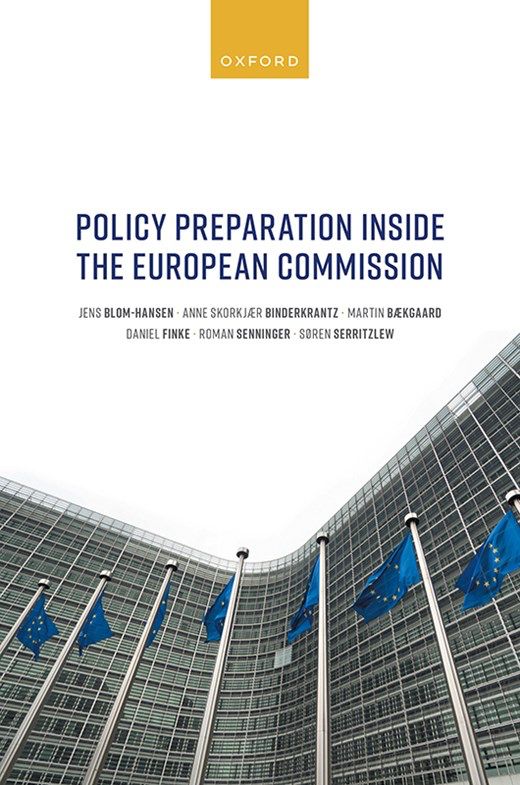
Policy Preparation Inside the European Commission is out with OUP @oxfordacademic.bsky.social
It’s about the behind-the-scenes stage of EU policymaking that shapes everything—yet rarely gets the spotlight: how the Commission prepares its proposals.
Link: doi.org/10.1093/9780...
Many thanks to @stefaniebailer.bsky.social and to @dweisstanner.bsky.social for hosting me.
Great questions and feedback throughout!
@polisciunibas.bsky.social @uniluzern.bsky.social




Many thanks to @stefaniebailer.bsky.social and to @dweisstanner.bsky.social for hosting me.
Great questions and feedback throughout!
@polisciunibas.bsky.social @uniluzern.bsky.social
Voters navigating complex, multilevel systems are exposed to many kinds of political information. But what kind do they actually seek — and use?
We find voters prefer policy over principles and they update their vote intention accordingly.
osf.io/preprints/os...

Voters navigating complex, multilevel systems are exposed to many kinds of political information. But what kind do they actually seek — and use?
We find voters prefer policy over principles and they update their vote intention accordingly.
osf.io/preprints/os...

Check out his great work (politica.dk/politicas-ph...), including a forthcoming article in PSRM.


Check out his great work (politica.dk/politicas-ph...), including a forthcoming article in PSRM.

Check out the special issue (🇬🇧/🇫🇷): Taking stock of the 2024 European elections in the 27 Member States: shs.cairn.info/journal-poli...

Check out the special issue (🇬🇧/🇫🇷): Taking stock of the 2024 European elections in the 27 Member States: shs.cairn.info/journal-poli...


The three parties differ in left-right and GAL-TAN positions, as shown in the latest @chesdata.bsky.social release. It will be interesting to see how they govern together and how voters respond.

The three parties differ in left-right and GAL-TAN positions, as shown in the latest @chesdata.bsky.social release. It will be interesting to see how they govern together and how voters respond.
ÖVP supporters feel more distance to SPÖ than vice versa and may want NEOS for balance, while SPÖ supporters might not see the same benefit of having NEOS in the mix.

ÖVP supporters feel more distance to SPÖ than vice versa and may want NEOS for balance, while SPÖ supporters might not see the same benefit of having NEOS in the mix.
NEOS and ÖVP supporters have ÖVP, SPÖ, and NEOS as their top choice.
SPÖ supporters prefer ÖVP + SPÖ without NEOS.

NEOS and ÖVP supporters have ÖVP, SPÖ, and NEOS as their top choice.
SPÖ supporters prefer ÖVP + SPÖ without NEOS.


